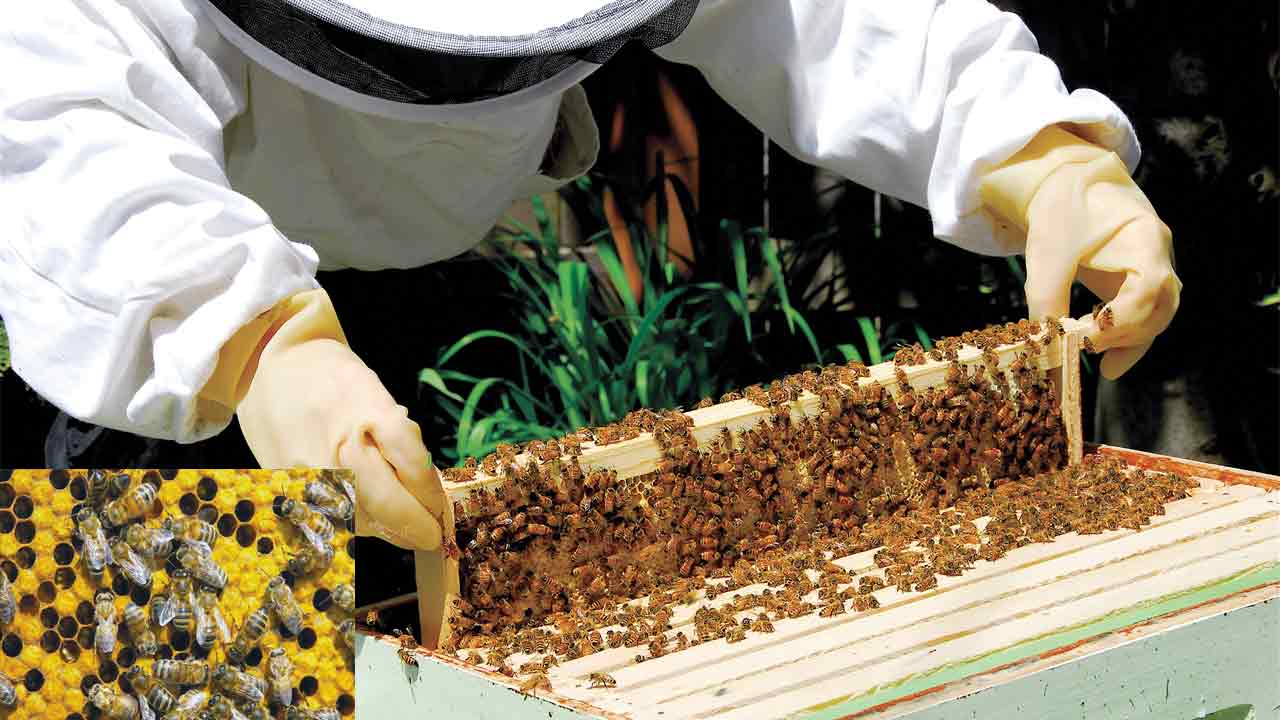Without bees, there would be no flowering plants, and without flowering plants there would be no bees. The honeybees and stingless bees have originally developed in forest biotopes.
Bees provide a better pollination that leads to improved regeneration of trees and conservation of the forest’s biodiversity as well as for the food production of all the other animals and birds in the forest ecosystem dependent on it for food, seeds and fruits.
Minister Mahen Seeruttun stated that the sector needs more support and he requested the Entomology Division to come up with a programme to further assist the bee-keepers. “In order to boost up our honey production, we need to increase the number of bee colonies.”
He was speaking on Thursday morning at the launch of the alternative livelihoods for Food and Income Security project funded by the International Fund for Agricultural Development and implemented by the International Centre of Insect Physiology and Ecology, Kenya. The project was launched at Bras d’Eau National Park.
The Minister stated that the main limiting factor for the expansion of apiculture in Mauritius is the decreasing area under melliferous plants such as eucalyptus, campêche, jamblon, tamarind, roussaille and vavangue. “Several hectares of land at Rivière Noire, Chamarel, Bras d’Eau and Roche Noires have been converted into urban areas. However, beekeeping is not recommended in urban areas as honey bees can become a nuisance and cause health hazards.
In order to address this constraint, forest areas in Bras d’Eau to the extent of 10 hectares, 19 hectares at Le Morne, 7 hectares at La Ferme, 15 hectares in the ex-tea belt areas, 5 hectares at Belle Village and 3 hectares at Cap Malheureux will be planted with melliferous plants. Some 10,000 melliferous plants will be planted by 2018 by the Forestry Service under this project. This measure will ensure a continuous flow of nectar to honey bees thus increasing honey production.
Minister Seeruttun revealed that the Forestry Service will not cut down eucalyptus trees in selected zones and the trees will flower to produce nectar and pollen for honey bees to flourish.
“The IFAD is, under the project, providing the funding to the tune of USD 172,385 for a period of two years. The main activity of the project include capacity building of beekeepers on the management of bee colonies, control of honey bee pests and diseases with bio-products, organic certification of our honey so that it can be branded, pollination of crops so as to increase production of quality fruits and vegetables, among others,” said minister Seeruttun.
According to the Minister, the project caters for one new model of beehive, a smoker, hat and veil and hive tool to be given free to each registered and trained beekeepers Mauritius and Rodrigues, who have a good site for keeping honey bees. “Bees are amongst the most important insects to humans. Pollinating flowers and contributing to the beautification of the planet’s floral landscapes is perhaps the simplest and least economically important actions but it is certainly its most aesthetically pleasing one. These humble, buzzing bugs deserve a huge thanks for helping in providing us with fruits and vegetables, honey and beautiful bio-diversity!”
 Par
News on Sunday, Defimedia.info
Par
News on Sunday, Defimedia.info
 Par
News on Sunday, Defimedia.info
Par
News on Sunday, Defimedia.info

 J'aime
J'aime